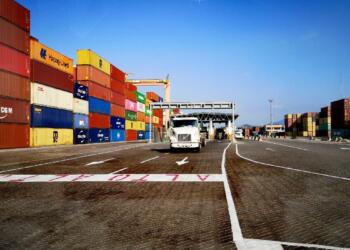
The Mexican automotive industry faces a challenging environment following the imposition of 25% tariffs on vehicles imported by the United States and manufactured in Mexico, which has impacted the sector’s mixed results in the first quarter of 2025 (1Q25), estimated the Monex Financial Group , which considered that the risk balance remains biased downwards due to the American Union’s protectionist and tariff policies.
In its Sector Analysis: Automotive Industry , Monex indicated that this could impact the close interdependence of supply chains, particularly due to the slowdown in the Mexican economy.
“Going forward, the announcement of possible bilateral negotiations will be crucial, given the high share of Mexican automotive content in U.S. market sales,” the institution emphasized.
According to figures from the National Institute of Statistics and Geography (INEGI) , in March, light vehicle production grew 12.1% annually, reaching 338,669 units , while in the accumulated total to 1Q25, manufacturing increased 4.8% compared to the same period in 2024.
Meanwhile, exports grew 3.8% annually in the third month of 2025; however, in the quarterly comparison, shipments abroad fell 6% compared to the same period last year.
Meanwhile, domestic sales of light vehicles reached 127,352 units in March 2025, and in the first quarter of this year, vehicle sales registered a 3.3% increase compared to the same quarter of the previous year.
Regarding heavy vehicles, 13,512 units were manufactured in March , while from January to March 2025 production reached 41,311 units , which meant a 21.8% annual drop.
In the third quarter of 2025, heavy vehicle exports fell 24.9% year-on-year, while in the first quarter of the year, exports of these vehicles registered a 19.7% decrease compared to the same period in 2024.
These data reflect mixed signals for the Mexican automotive industry for both light and heavy vehicles, in addition to the tariff imposition promoted by US President Donald Trump .
According to Monex, this is compounded by the pressure exerted by the U.S. government itself on American automakers with operations in Mexico to return their production to the United States.
“These measures represent a direct threat to Mexican exports, which reached a record 3.5 million units in 2024. Given this scenario, the sector could face a significant slowdown, considering that 79.7% of national production was destined for the US market,” he added.
The new tariff could increase the unit price that American consumers will have to pay, which would impact vehicle demand, the financial institution predicted.
“In parallel, assembly plants established in Mexico are evaluating adjustments to their supply chains to increase regional content and ensure their eligibility for the exemption, underscoring the critical importance of compliance with the trade agreement’s rules of origin,” the financial institution stated.
Monex’s analysis adds to forecasts by Fitch Ratings , which changed its outlook for the global automotive sector from “neutral” to “deteriorated” for 2025, as it estimated that the U.S. tariff measure will lead to production cuts and increased costs.
The rating agency said this could put pressure on the profitability of automakers and their free cash flow in the short term, and noted that the tariffs represent a significant risk for automakers that import vehicles manufactured in Mexico, Canada, Japan, Korea, and Germany to the United States.
Comment and follow us on X: @GrupoT21















